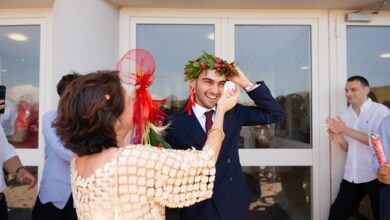The Prodigy Under Pressure: Florian Wirtz’s Anfield Conundrum

In the high-stakes world of elite football, where every pass, tackle, and goal is dissected under a magnifying glass, it’s rare for a national team manager to publicly comment on a player’s club struggles, let alone pinpoint the exact cause with such candidness. Yet, Julian Nagelsmann, the astute Germany boss, has done just that. His recent assertion, blaming a “clash of egos” at Liverpool for Florian Wirtz’s current struggles at Anfield, has sent ripples through the football community, prompting a collective gasp and a deep dive into what truly goes on behind the scenes at one of the world’s most storied clubs. It forces us to ask: is it merely a talent issue, a tactical misstep, or something far more intricate at play?
The Prodigy Under Pressure: Florian Wirtz’s Anfield Conundrum
Florian Wirtz arrived at Liverpool not just as a promising youngster, but as a bonafide phenomenon. Bundesliga fans and scouts alike had watched in awe as the attacking midfielder carved defenses open with sublime vision, dazzling dribbling, and a maturity far beyond his years at Bayer Leverkusen. He was the poster child for modern German football — dynamic, intelligent, and relentlessly creative. His move to Anfield was heralded as a major coup, a signing that promised to infuse an already potent Liverpool squad with an extra layer of attacking flair.
Yet, the reality has been starkly different. “Enduring a torrid time at Anfield” feels almost like an understatement. Wirtz has often looked a shadow of his former self, struggling to find rhythm, impact games consistently, or truly stamp his authority on the pitch. The moments of magic, so frequent in Germany, have been fleeting, replaced by spells of anonymity. It’s a classic case of a square peg in a round hole, or so it seems from the outside looking in.
The Premier League is an unforgiving beast, demanding not just technical brilliance but also immense physical and mental fortitude. Many foreign talents take time to adapt, but for a player of Wirtz’s undeniable pedigree and price tag, the prolonged period of adjustment has been a growing concern. Fans, media, and indeed, Nagelsmann himself, are left to ponder why a player of such immense talent hasn’t seamlessly integrated into the famous Red machine.
Julian Nagelsmann’s Diagnosis: Unpacking the “Clash of Egos”
Nagelsmann’s remarks cut through the usual platitudes of “new league, new system” and ventured into the often-unspoken dynamics of a dressing room. When a manager of his caliber speaks of a “clash of egos,” it’s not a throwaway comment; it’s an observation born from deep understanding of team psychology and elite player management. But what exactly does he mean?
The Delicate Balance of Stardom and Squad Harmony
At a club like Liverpool, success is built on collective effort, but it also features a constellation of genuine stars. Think about the established hierarchy, the players who have won Champions Leagues and Premier League titles. They are leaders, record-breakers, and fiercely competitive individuals. When a new, highly-touted talent arrives, especially one who naturally commands the ball and seeks to be the creative fulcrum, it can inadvertently disrupt existing power structures or tactical preferences.
Is Nagelsmann suggesting that some established figures are unwilling to cede creative freedom or tactical space to Wirtz? Is it a case of players wanting to stick to their tried-and-tested patterns, which might not always involve feeding the ball to the new attacking midfielder in the way he thrives? It’s a subtle but significant distinction from outright animosity; rather, it’s about the natural gravitational pull of individual ambition and the desire to maintain one’s own influence within the team setup.
Managers constantly walk a tightrope, balancing individual brilliance with team cohesion. Integrating a player like Wirtz, who requires a certain tactical freedom and supply line to truly flourish, demands careful orchestration. If the existing “egos” – not in a negative sense, but as strong, confident personalities – are accustomed to a particular flow of play, shifting that paradigm requires more than just talent; it requires collective buy-in and a willingness to adapt.
Beyond Tactics: The Psychological Toll of Non-Integration
While Nagelsmann’s comments focus on external factors within the squad, we cannot overlook the profound psychological impact such an environment can have on a young player. Imagine being the subject of intense media scrutiny, feeling the immense pressure of a big transfer fee, and then struggling to find your footing in a new country, a new language, and a new footballing culture. It’s a recipe for self-doubt and frustration.
Wirtz, for all his talent, is still human. A creative player’s confidence is a fragile thing, intimately linked to their ability to express themselves freely on the pitch. If he feels stifled, either tactically or due to a lack of genuine connection with teammates, that spark can dim. We’ve seen countless examples of players who simply never “clicked” with a club, not because of a lack of ability, but because the human element – the chemistry, the comfort, the sense of belonging – was missing.
The job of a manager and his coaching staff extends beyond tactics; it involves nurturing individual players, understanding their psychological needs, and creating an environment where every player feels valued and empowered to contribute their best. For Wirtz, it appears this crucial integration process has hit significant roadblocks, leading to his current struggles rather than the anticipated meteoric rise.
The Road Ahead: Navigating the Complexities
Nagelsmann’s frank assessment serves as a powerful reminder that football, at its highest level, is far more than just X’s and O’s. It’s a complex tapestry woven with individual personalities, collective ambitions, tactical demands, and the ever-present human element of ego and emotion. For Florian Wirtz, the path forward will require not just a renewed focus on his own game but also a concerted effort from all parties at Liverpool to address the underlying dynamics.
Whether it involves tactical adjustments to better suit his strengths, a more intentional effort from teammates to involve him in critical phases of play, or psychological support to rebuild his confidence, the solution will undoubtedly be multifaceted. Nagelsmann’s comments, while potentially controversial, have opened up a vital conversation about the invisible forces that shape a player’s destiny at an elite club. It’s a testament to his insight, and a stark lesson for any club contemplating a high-profile transfer: talent alone is never enough; the human ecosystem must also be in harmony for true potential to be unleashed.





